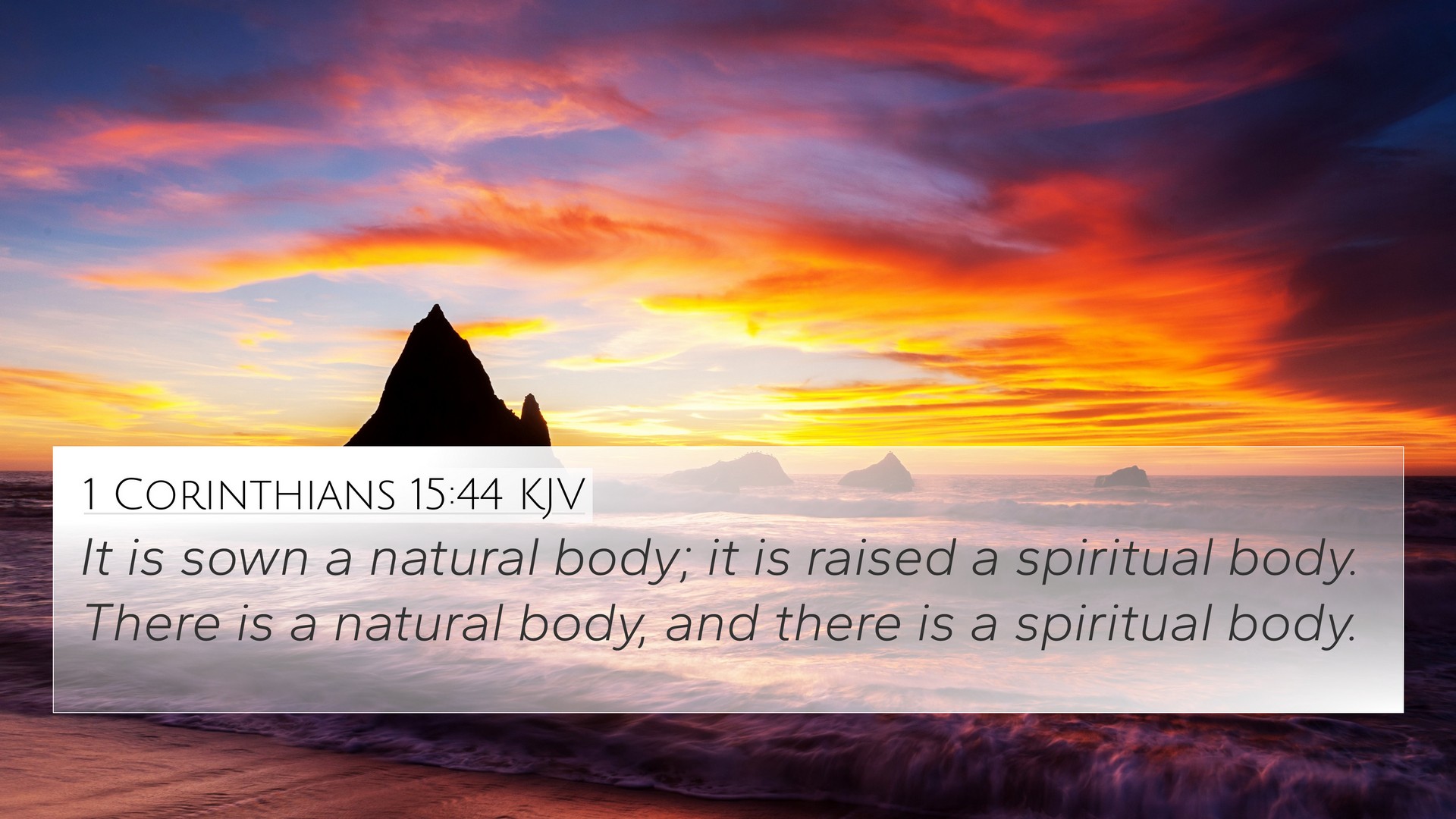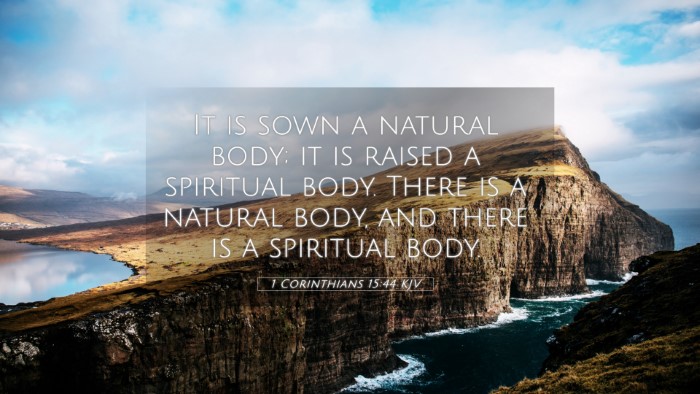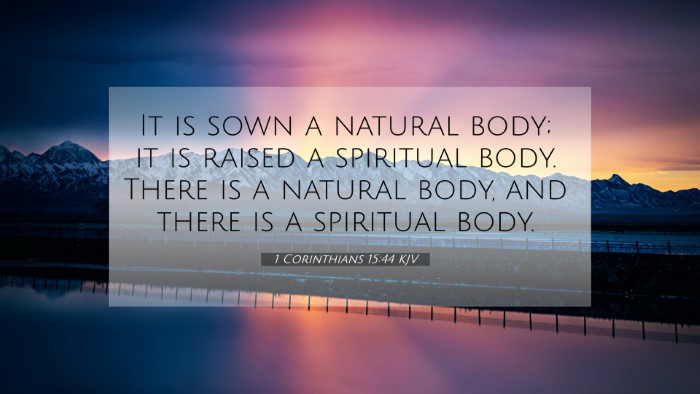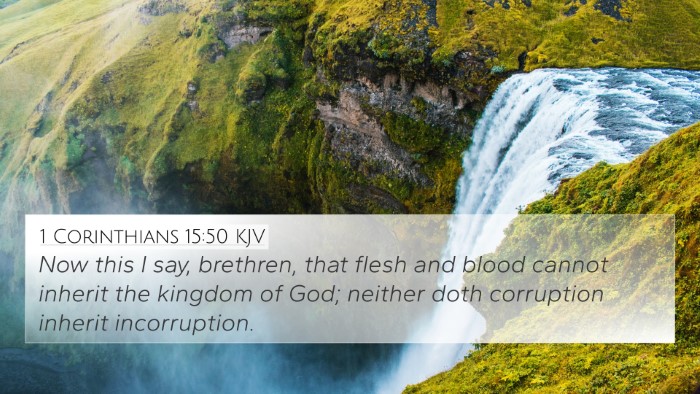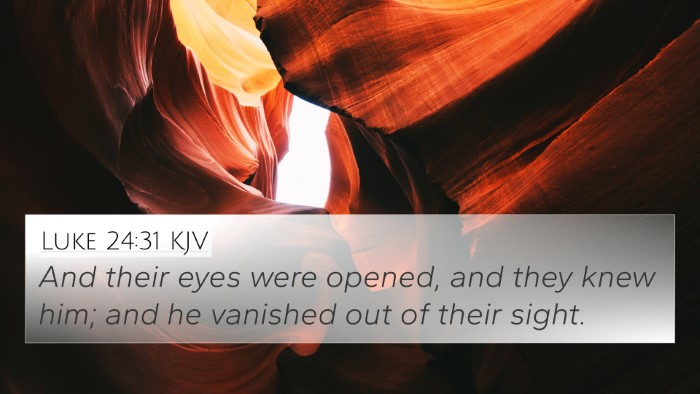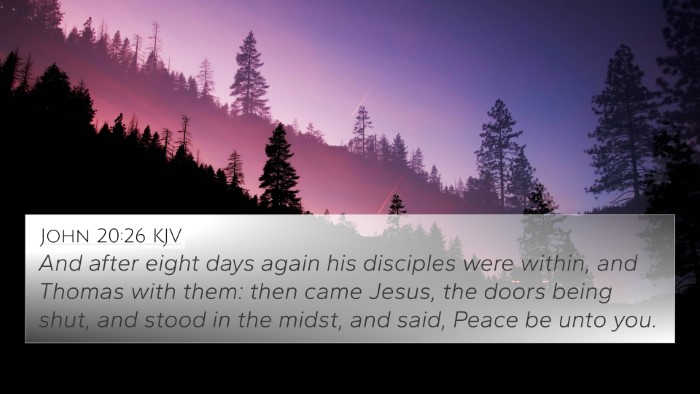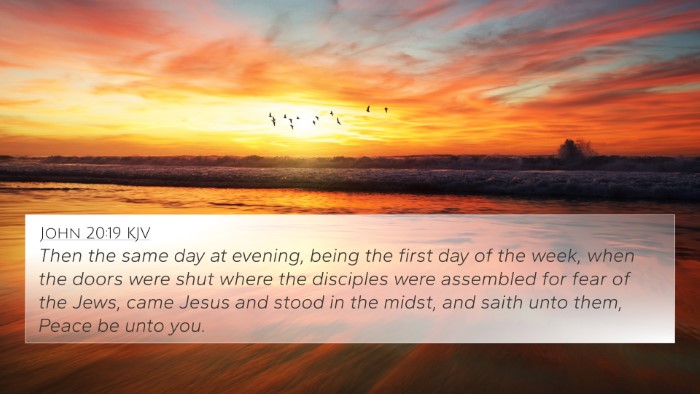Understanding 1 Corinthians 15:44
Verse: 1 Corinthians 15:44 (KJV) - "It is sown a natural body; it is raised a spiritual body. There is a natural body, and there is a spiritual body."
Verse Meaning
This verse delves into the profound mystery of resurrection, contrasting the physical (natural) body with the spiritual body in the resurrection of believers. Paul emphasizes the transformation that occurs when a person is resurrected, illustrating the difference between our earthly existence and our heavenly future.
Insights from Public Domain Commentaries
Matthew Henry's Commentary
Matthew Henry explains that the natural body is suited for life in this world, constrained by time and decay, while the spiritual body will be fit for the eternal state, characterized by glory and immortality. He stresses that the resurrection is a divine transformation, suggesting that believers should hope for the transformation into a spiritual form, which is promised through Christ.
Albert Barnes' Notes
Albert Barnes notes that the phrase "natural body" refers to the body we inhabit in our earthly existence, which is subject to weakness and death. In contrast, the "spiritual body" refers to the glorified and immortal body that believers will receive, which is free from all earthly limitations. Barnes asserts that this transformation is essential for inheriting eternal life, linking this concept to the overarching theme of resurrection in the New Testament.
Adam Clarke's Commentary
Adam Clarke elaborates on the duality of the body and reinforces the idea that the spiritual body is not merely a continuation of the natural but a wholly renewed entity. Clarke asserts that this transition from natural to spiritual represents the fulfillment of God's promise and the ultimate victory over death, drawing parallels with other scripture where the nature of believers' resurrection is discussed.
Bible Verse Cross-References
To enhance understanding, here are several Bible verses that relate to each other and provide thematic connections to 1 Corinthians 15:44:
- John 3:6 - "That which is born of the flesh is flesh; and that which is born of the Spirit is spirit."
- Philippians 3:21 - "Who shall change our vile body, that it may be fashioned like unto his glorious body, according to the working whereby he is able even to subdue all things unto himself."
- Romans 8:11 - "But if the Spirit of him that raised up Jesus from the dead dwell in you, he that raised up Christ from the dead shall also quicken your mortal bodies by his Spirit that dwelleth in you."
- 2 Corinthians 5:1 - "For we know that if our earthly house of this tabernacle were dissolved, we have a building of God, an house not made with hands, eternal in the heavens."
- 1 John 3:2 - "Beloved, now are we the sons of God, and it doth not yet appear what we shall be: but we know that, when he shall appear, we shall be like him; for we shall see him as he is."
- Isaiah 25:8 - "He will swallow up death in victory; and the Lord God will wipe away tears from off all faces."
- Revelation 21:4 - "And God shall wipe away all tears from their eyes; and there shall be no more death, neither sorrow, nor crying, neither shall there be any more pain: for the former things are passed away."
Thematic Connections and Analysis
This verse not only serves as a cornerstone for understanding the resurrection but also invites deeper exploration into the following themes:
- Transformation from the temporal to the eternal.
- The relationship between the physical and the spiritual in the context of faith.
- The hope and assurance of a resurrected life promised through Christ.
- Connecting Pauline theology with the resurrection accounts in the Gospels.
- Exploring Old Testament prophecies regarding resurrection and their fulfillment in the New Testament.
Cross-Referencing Biblical Texts
Utilizing tools for Bible cross-referencing can greatly aid in understanding such connections:
- Using a Bible concordance to locate related verses that discuss resurrection.
- Employing a Bible cross-reference guide for thematic studies.
- Implementing Bible reference resources to trace the development of resurrection theology throughout scripture.
Conclusion: Embracing the Promises of Resurrection
In conclusion, 1 Corinthians 15:44 encapsulates a vital message of hope in the Christian faith, illustrating the transition from a natural body to a spiritual one, pivotal for believers. Engaging in comparative Bible verse analysis through cross-referencing encourages a deeper understanding of the scriptural promises which undergird the assurance of eternal life.
